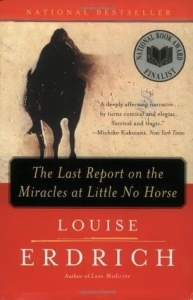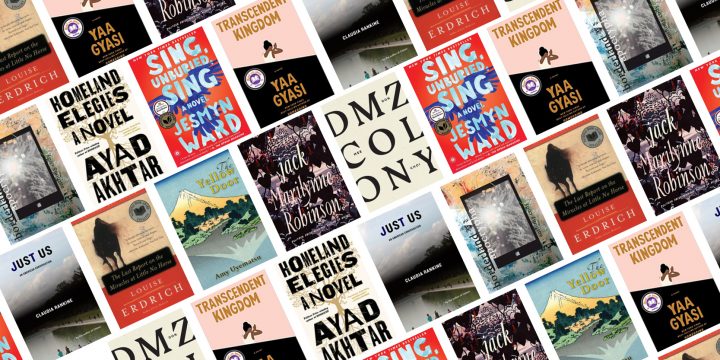
For this reading list, books from PEN America’s signature event series, PEN Out Loud, have been highlighted and paired with complementary titles selected by staff members from PEN America’s Literary Programs Department. PEN Out Loud is focused on amplifying diverse voices and convening vital conversations with authors, poets, journalists, artists, and activists. This fall, these conversations are in direct response to the very specific moment we’re in culturally and politically. Featuring Yaa Gyasi with Roxane Gay, Ayad Akhtar with Ben Rhodes, Claudia Rankine with Lauren Michele Jackson, and Marilynne Robinson with Alexander Chee, each event this season examines the fabric of our culture with deft insight and illuminates a wide range of themes such as whiteness, faith, interracial love, midwestern and southern culture, depression, and immigration. The books that we’ve chosen to accompany them also grapple with these themes, often pushing conceptual and formal boundaries to examine these important—and ongoing—conversations.
Jared Jackson, Literary Programs Coordinator, recommends:
Transcendent Kingdom by Yaa Gyasi (Knopf, 2020)
Bookshop | Amazon
A follow-up to Yaa Gyasi’s acclaimed national bestseller Homegoing, Transcendent Kingdom is a powerful, raw, intimate, and deeply layered novel set in Alabama. Transcendent Kingdom is a deeply moving portrait of a family of Ghanaian immigrants ravaged by depression, addiction, and grief—a novel about faith, science, religion, and love.
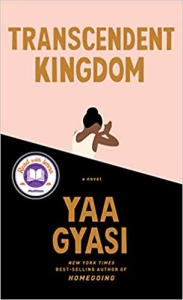
Sing, Unburied, Sing by Jesmyn Ward (Scribner, 2018)
Bookshop | Amazon
The last novel to move me to tears, Jesmyn Ward’s second National Book Award-winning book Sing, Unburied Sing is an intimate portrait of three generations of a family. In its examination of grief and the South, love and race, and hope and struggle, Sing, Unburied Sing is an achingly appropriate compliment to Yaa Gyasi’s Transcendent Kingdom—both stirring and unforgettable.
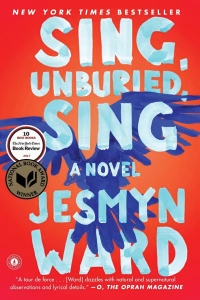
Viviane Eng, Literary Programs Assistant, recommends:
Homeland Elegies by Ayad Akhtar (Little, Brown and Company, 2020)
Bookshop | Amazon
Best known as a playwright, Ayad Akhtar masterfully captures the love-hate relationship that many immigrants have with America in his new novel. Blending elements of fact and fiction, Homeland Elegies reimagines and contests the notion of the American Dream, especially for Muslim Americans in a post-Trumpian United States.
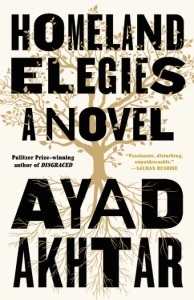
The Yellow Door by Amy Uyematsu (Red Hen Press, 2015)
Bookshop | Amazon
Sansei poet Amy Uyematsu explores her Japanese American identity by examining the color yellow, and how it has shaped and imposed a reckoning of her ethnic consciousness and outsider status in her own country. In lyric verses, she traces the roots of her family history, ranging from her grandparents’ immigration to California, to Executive Order 9066, to growing up in post-WWII Los Angeles.
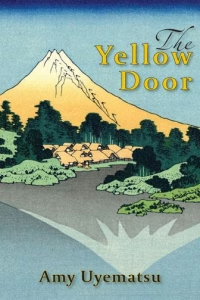
Jane Marchant, Literary Awards Manager, recommends:
Just Us: An American Conversation by Claudia Rankine (Graywolf, 2020)
Bookshop | Amazon
DMZ Colony by Don Mee Choi (Wave Books, 2020)
Bookshop | Amazon
My first thought when picking up Claudia Rankine’s Just Us was: What is this? And then, Is this poetry, essay—whose house is that? How long ago was this photo taken? I remember watching that video. As a reader, I became at first enthralled and then implicated in what is at once a historical and contemporary conversation between me, Claudia, and our country. She writes: “We must travel through a cloudy veil to arrive at a human object. Whiteness is a way of seeing.” To see, we must examine: maps; images; graphs listing family net worths. The data acts as proof, as truth, which of course can still be denied, but just because some people wish it wasn’t true, doesn’t mean it isn’t. It is frightful. Controlled. Manic. Resourceful. Traced. Physically traced, as Whiting Award-winning poet Don Mee Choi places tracing paper over photos of the sky and migrating snow geese in DMZ Colony, as she follows thin borders and a city timeline displayed on the wall of Seoul’s mayor’s office, her father in the background of a photograph from 1961 as martial law is declared. In the photograph, he carries a camera. Her collection, DMZ Colony, carries this weight.
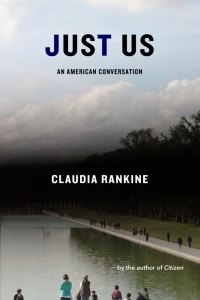
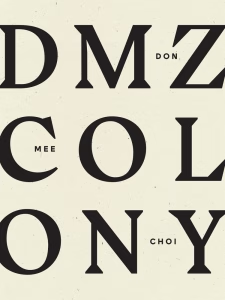
Borderland Apocrypha by Anthony Cody (Omnidawn, 2020)
Bookshop | Amazon
And in this trilogy of must-read poetry collections, Anthony Cody asks us in Borderland Apocrypha to remember that there once was no distinction between North and South, but there was a Mexican-American War and a Treaty of Guadalupe Hidalgo in 1848, and there was a Hanging Tree outside the courthouse in Goliad Texas that can now be reviewed on TripAdvisor. Cody forms his words on the page as arrows, as roots, as neverending pinwheels; he places them with a film strip of buffalo and newspaper clippings and turns them into charts. Here. Here. Here. Here are the places this happened.
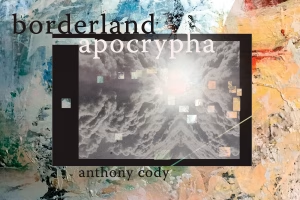
These books are physical weights in my hands, and these borders between us are human-made. In these collections, these writers show how far poetry has moved beyond meter and stanzas. It has crossed memory, time, borders, and to use Rankine’s words and make them anew, poetry becomes “Just us, just people, the same people.” But we as a people must be prepared to carry the conversation.
Nicole Marie Gervasio, Festival & Public Programs Manager, recommends:
Jack by Marilynne Robinson (FSG, 2020)
Bookshop | Amazon
The fourth novel in Marilynne Robinson’s now-classic Gilead series, Jack illuminates America’s embattled relationships with race through a romance that enthralls a white minister’s prodigal son and a Black school teacher. As these two grapple with the paradoxes of the faith they share in the fictive town of Gilead, they test the power of love to overpower the social divisions they cannot overcome.
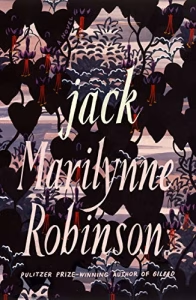
The Last Report on the Miracles at Little No Horse by Louise Erdrich (Harper Perennial, 2009)
Bookshop | Amazon
Like Marilynne Robinson, Anishinaabe writer Louise Erdrich creates alternate universes that provoke us to rethink what we thought we knew about race, class, and religion in America’s heartland. In this novel, part of her Love Medicine series, an Ojibwe woman ends an interracial relationship with the man she loves to devote herself to Christ as a pastor, with one catch: She must live as a man for the rest of her life.
